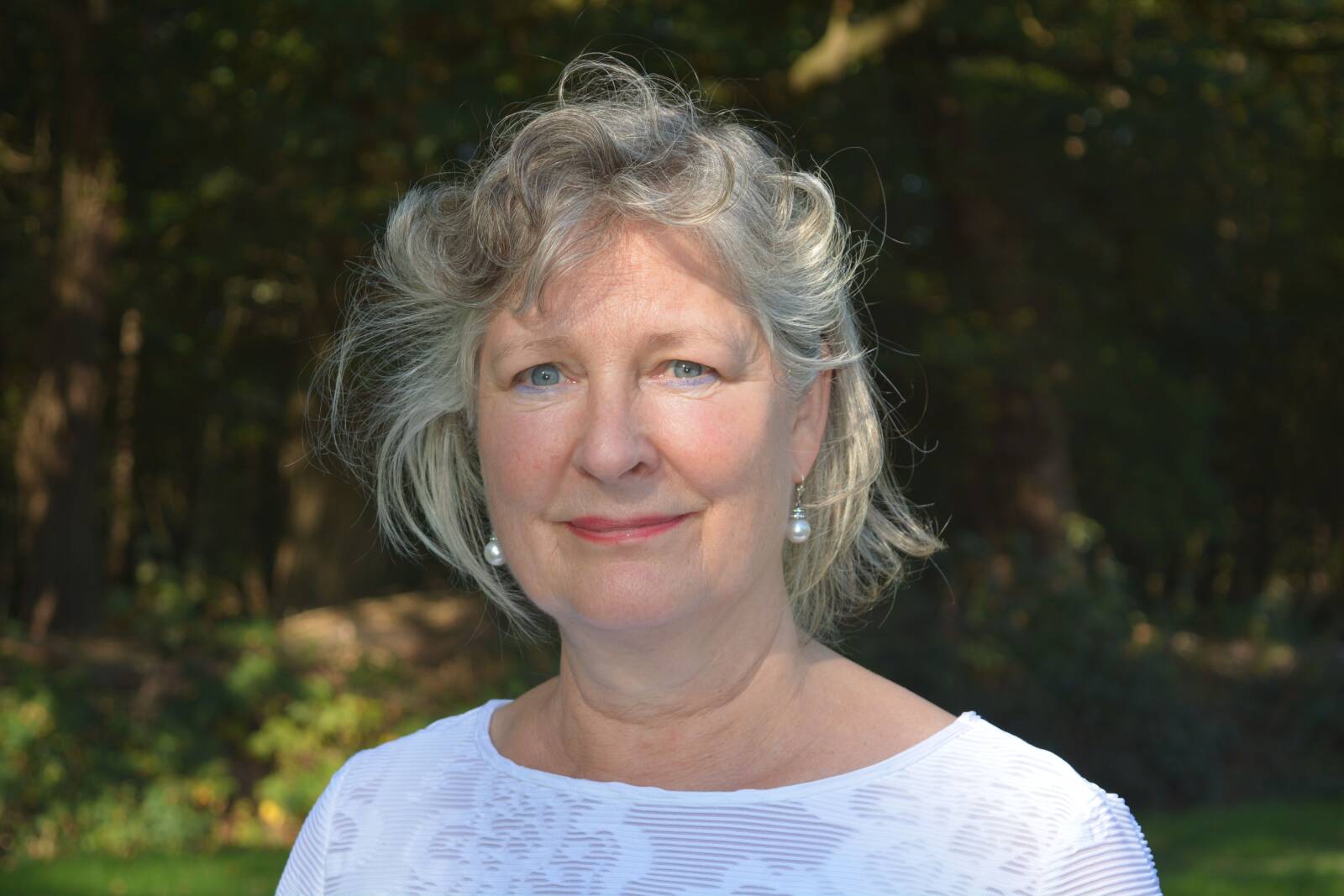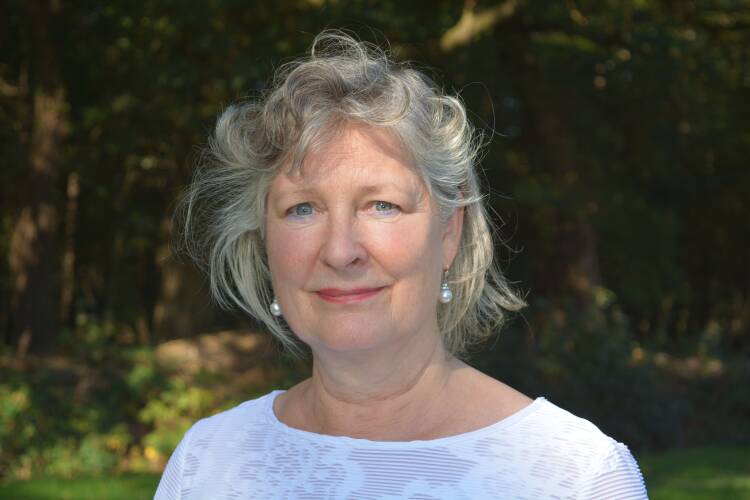PHOTO: 123RF / AI-GEGENEREERD


Learning to sleep like a cat on the windowsill

READING TIME: 5 MINUTES
PROPOSITION


Anna J. Dreischerf – Faculty of Economics and Business
Caveat emptor (Latin for: “let the buyer beware”)
TEXT: KIRSTEN OTTEN
Marike Lancel (1959) studied physiological psychology in Leiden before doing her PhD research in Based into, among others, the automation of research on the effects on sleep of potential new medication. After that, she worked at the Max Planck Institute of Psychiatry in Munich as head of the sleep pharmacology research group. Since 2005, Lancel works as a senior researcher and somnologist at the Forensic Psychiatric Clinic of mental healthcare organization GGZ in Drenthe. She is co-founder of the Expertise Centre for Sleep and Psychiatry in Assen. In 2016, Lancel was appointed Professor by special appointment of Sleep and Psychopathology at the Department of Clinical Psychology & Experimental Psychopathology at the Faculty of Behavioural and Social Sciences of the UG.
Sleeping poorly on a chronic basis could have major consequences both for our body and our mind. According to Marike Lancel, sleep physician and Professor by special appointment of
Sleep and Psychopathology, cognitive behavioural therapy is a much more enduring and
effective solution than sleep medication.
“
‘People can get terribly upset from
long-term insomnia’
For more than forty years, Marike Lancel has been researching sleep and sleep problems. ‘The fascination arose during my final research project in Leiden when I researched the effects of shiftwork on quality of sleep. It almost felt like pioneering because at the time relatively little was known about the functions of sleep and about how sleep is regulated in our brain.’
In the past decades, sleep medicine has taken off and we gained a lot more insight into the complex workings and the importance of sleep. Lancel talks about how sleep disorders and a chronic lack of sleep can severely affect your mental and physical health. ‘They increase the risk of cardiovascular disease, diabetes, obesity, and certain types of cancer, and they also make you vulnerable to mental disorders.’
Sleep centre
Lancel’s focus particularly goes to sleeping problems in psychiatry: ‘Unfortunately, psychiatric disorders often go hand in hand with various sleep disorders. At our sleep centre in Assen, in addition to insomnia, we see a lot of patients who suffer from, for example, delayed sleep phase syndrome, which signifies an extremely late biological clock, which means that sleep does not come until far past midnight. Restless legs syndrome, which afflicts not only the elderly but also many pregnant women and users of antidepressants and antipsychotics, also occurs frequently. And of course sleep apnea, in which the breathing frequently halts during sleep. The latter two syndromes cause a person to frequently and briefly wake up without realizing it, preventing them from reaching a state of deep sleep. In addition, sleep apnea causes the body to produce stress hormones, which may result in significant adverse physical consequences.’
In more than half of the psychiatric patients with sleeping problems, insomnia becomes a problem of its own. Lancel explains: ‘A sleep disorder then becomes a chronic condition that hinders the recovery from the psychiatric disorder and often also triggers other disorders, such as depression and anxiety disorders.’
Sleeping pills
Until recently, it was common practice both within psychiatry and within regular care to prescribe sleeping pills for insomnia. Through her work at the Forensic Psychiatric Clinic of GGZ Drenthe, Lancel knows that there are certain situations within psychiatry where a sleeping pill is definitely a good choice: ‘People can get terribly upset from long-term insomnia. A sleeping pill will give them the rest they so desperately need.’ For non-psychiatric patients, however, the effect initially also causes relief: ‘You take a pill—, in the Netherlands, it would often be a benzodiazepine receptor agonist—and you know: sleep will come and I will wake up again in the morning.’
Adverse effects
In recent years, however, a lot of details have come to light about the adverse effects of sleeping pills. For example, sleep under the influence of sleep medication runs a very different course compared to natural sleep. In sleep registrations at the sleep clinic, Lancel sees that sleep medication predominantly causes relatively light sleep stages and few stages of deep sleep and ‘dream sleep’, i.e. REM sleep. These two sleep stages are in fact essential for multiple physical and mental processes, such as the strengthening of the immune system, the disposal of waste products in the brain, and the processing of emotions. ‘Normally, when you’ve had a night with too little sleep, you will automatically sleep deeper and have more REM sleep the following night. That is how you catch up on the sleep you missed. Sleep medication actually keeps you in a lighter sleep and prevents the deeper sleep stages with all its consequences in the long run.’
Increasingly higher dosage
In addition, we become tolerant to sleep medication fairly quickly, which means that you need an increasingly higher dosage to reach the same effect. Lancel says: ‘Benzodiazepines may be prescribed for a maximum period of three weeks. When sleep medication is used for a longer period, it is important to reduce the dosage gradually. If you stop taking it at once, you often go from bad to worse: you’ll be lying in bed tossing and turning for hours and you’ll have withdrawal symptoms. This will recover on its own, but first try and see if you can get through those miserable nights without falling back to the sleeping pills.’
Preprogram your own insomnia
A new job, an exam: sleeping problems are often triggered by tension or by a new sleeping situation because of the birth of a baby, for example. Unfortunately, it is very often not the case that when the cause disappears—you have had your exam, the baby is older and sleeps better at night—the sleeping problem is also gone. ‘One of the causes of that is that people have the tendency to change their normal sleeping patterns when they experience sleep problems by sleeping a couple of hours during the day, going to bed earlier, or by sleeping in very long,’ Lancel explains. ’Due to this, this person has not built up enough need for sleep in the evening, which makes falling asleep and continuing to sleep more difficult. And that’s how you’ve technically preprogrammed your insomnia for the next night a little. Worrying about poor sleep also hinders sleep. Your bed then becomes a place that you subconsciously associate with lying awake, tension, and tossing and turning. And that’s exactly what shouldn’t happen.’
Behavioural therapy
But what is it that should happen? Lancel is inspired by the way her cats take a break: ‘They look for a sunny spot on the windowsill, curl up, and fall into a wonderful sleep. People are of course different, but still. I highly recommend developing an uncomplicated attitude toward sleep, just like cats. Cognitive behavioural therapy for insomnia (CGT-I) could help by replacing all habitual patterns that are in the way of healthy sleep. During this therapy, you learn how to build up your need for sleep, fall asleep better, and continue to sleep. You learn to think differently about the things you worry about. You train how to make yourself stop worrying in bed and how to relax, both physically and mentally. Around 40-70% of people no longer experience insomnia after having had CGT-I, and 70-80% saw an improvement in their sleep. These are impressively high scores.’ Therapy has become more and more accessible in recent years: ‘You can also do it as group therapy, and many GP practice assistants offer this service as well. There are also apps and online programs to support this therapy to strengthen your own ability to sleep as optimally as possible. Almost as simple as the sleeping cat on the windowsill.’
Learning to sleep like a cat on the windowsill



READING TIME: 5 MINUTES
PHOTO: 123RF / AI-GEGENEREERD

PROPOSITION
Anna J. Dreischerf – Faculty of Economics and Business
Caveat emptor (Latin for: “let the buyer beware”)
Marike Lancel (1959) studied physiological psychology in Leiden before doing her PhD research in Based into, among others, the automation of research on the effects on sleep of potential new medication. After that, she worked at the Max Planck Institute of Psychiatry in Munich as head of the sleep pharmacology research group. Since 2005, Lancel works as a senior researcher and somnologist at the Forensic Psychiatric Clinic of mental healthcare organization GGZ in Drenthe. She is co-founder of the Expertise Centre for Sleep and Psychiatry in Assen. In 2016, Lancel was appointed Professor by special appointment of Sleep and Psychopathology at the Department of Clinical Psychology & Experimental Psychopathology at the Faculty of Behavioural and Social Sciences of the UG.
Sleeping poorly on a chronic basis could have major consequences both for our body and our mind. According to Marike Lancel, sleep physician and Professor by special appointment of
Sleep and Psychopathology, cognitive behavioural therapy is a much more enduring and effective solution than sleep medication.

“
‘People can get terribly
upset from long-term
insomnia’
TEXT: KIRSTEN OTTEN
For more than forty years, Marike Lancel has been researching sleep and sleep problems. ‘The fascination arose during my final research project in Leiden when I researched the effects of shiftwork on quality of sleep. It almost felt like pioneering because at the time relatively little was known about the functions of sleep and about how sleep is regulated in our brain.’
In the past decades, sleep medicine has taken off and we gained a lot more insight into the complex workings and the importance of sleep. Lancel talks about how sleep disorders and a chronic lack of sleep can severely affect your mental and physical health. ‘They increase the risk of cardiovascular disease, diabetes, obesity, and certain types of cancer, and they also make you vulnerable to mental disorders.’
Sleep centre
Lancel’s focus particularly goes to sleeping problems in psychiatry: ‘Unfortunately, psychiatric disorders often go hand in hand with various sleep disorders. At our sleep centre in Assen, in addition to insomnia, we see a lot of patients who suffer from, for example, delayed sleep phase syndrome, which signifies an extremely late biological clock, which means that sleep does not come until far past midnight. Restless legs syndrome, which afflicts not only the elderly but also many pregnant women and users of antidepressants and antipsychotics, also occurs frequently. And of course sleep apnea, in which the breathing frequently halts during sleep. The latter two syndromes cause a person to frequently and briefly wake up without realizing it, preventing them from reaching a state of deep sleep. In addition, sleep apnea causes the body to produce stress hormones, which may result in significant adverse physical consequences.’
In more than half of the psychiatric patients with sleeping problems, insomnia becomes a problem of its own. Lancel explains: ‘A sleep disorder then becomes a chronic condition that hinders the recovery from the psychiatric disorder and often also triggers other disorders, such as depression and anxiety disorders.’
Sleeping pills
Until recently, it was common practice both within psychiatry and within regular care to prescribe sleeping pills for insomnia. Through her work at the Forensic Psychiatric Clinic of GGZ Drenthe, Lancel knows that there are certain situations within psychiatry where a sleeping pill is definitely a good choice: ‘People can get terribly upset from long-term insomnia. A sleeping pill will give them the rest they so desperately need.’ For non-psychiatric patients, however, the effect initially also causes relief: ‘You take a pill—, in the Netherlands, it would often be a benzodiazepine receptor agonist—and you know: sleep will come and I will wake up again in the morning.’
Adverse effects
In recent years, however, a lot of details have come to light about the adverse effects of sleeping pills. For example, sleep under the influence of sleep medication runs a very different course compared to natural sleep. In sleep registrations at the sleep clinic, Lancel sees that sleep medication predominantly causes relatively light sleep stages and few stages of deep sleep and ‘dream sleep’, i.e. REM sleep. These two sleep stages are in fact essential for multiple physical and mental processes, such as the strengthening of the immune system, the disposal of waste products in the brain, and the processing of emotions. ‘Normally, when you’ve had a night with too little sleep, you will automatically sleep deeper and have more REM sleep the following night. That is how you catch up on the sleep you missed. Sleep medication actually keeps you in a lighter sleep and prevents the deeper sleep stages with all its consequences in the long run.’
Increasingly higher dosage
In addition, we become tolerant to sleep medication fairly quickly, which means that you need an increasingly higher dosage to reach the same effect. Lancel says: ‘Benzodiazepines may be prescribed for a maximum period of three weeks. When sleep medication is used for a longer period, it is important to reduce the dosage gradually. If you stop taking it at once, you often go from bad to worse: you’ll be lying in bed tossing and turning for hours and you’ll have withdrawal symptoms. This will recover on its own, but first try and see if you can get through those miserable nights without falling back to the sleeping pills.’
Preprogram your own insomnia
A new job, an exam: sleeping problems are often triggered by tension or by a new sleeping situation because of the birth of a baby, for example. Unfortunately, it is very often not the case that when the cause disappears—you have had your exam, the baby is older and sleeps better at night—the sleeping problem is also gone. ‘One of the causes of that is that people have the tendency to change their normal sleeping patterns when they experience sleep problems by sleeping a couple of hours during the day, going to bed earlier, or by sleeping in very long,’ Lancel explains. ’Due to this, this person has not built up enough need for sleep in the evening, which makes falling asleep and continuing to sleep more difficult. And that’s how you’ve technically preprogrammed your insomnia for the next night a little. Worrying about poor sleep also hinders sleep. Your bed then becomes a place that you subconsciously associate with lying awake, tension, and tossing and turning. And that’s exactly what shouldn’t happen.’
Behavioural therapy
But what is it that should happen? Lancel is inspired by the way her cats take a break: ‘They look for a sunny spot on the windowsill, curl up, and fall into a wonderful sleep. People are of course different, but still. I highly recommend developing an uncomplicated attitude toward sleep, just like cats. Cognitive behavioural therapy for insomnia (CGT-I) could help by replacing all habitual patterns that are in the way of healthy sleep. During this therapy, you learn how to build up your need for sleep, fall asleep better, and continue to sleep. You learn to think differently about the things you worry about. You train how to make yourself stop worrying in bed and how to relax, both physically and mentally. Around 40-70% of people no longer experience insomnia after having had CGT-I, and 70-80% saw an improvement in their sleep. These are impressively high scores.’ Therapy has become more and more accessible in recent years: ‘You can also do it as group therapy, and many GP practice assistants offer this service as well. There are also apps and online programs to support this therapy to strengthen your own ability to sleep as optimally as possible. Almost as simple as the sleeping cat on the windowsill.’